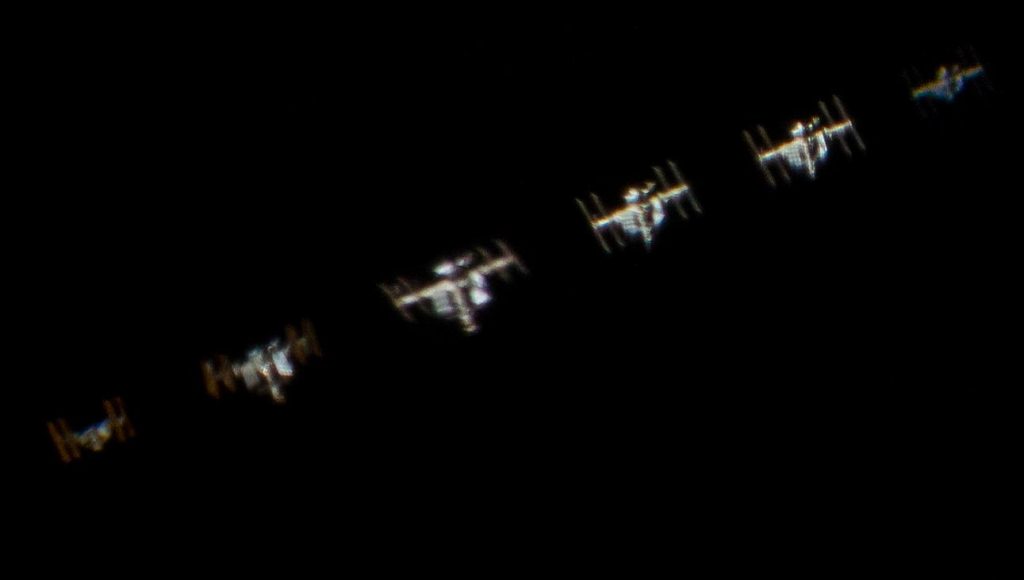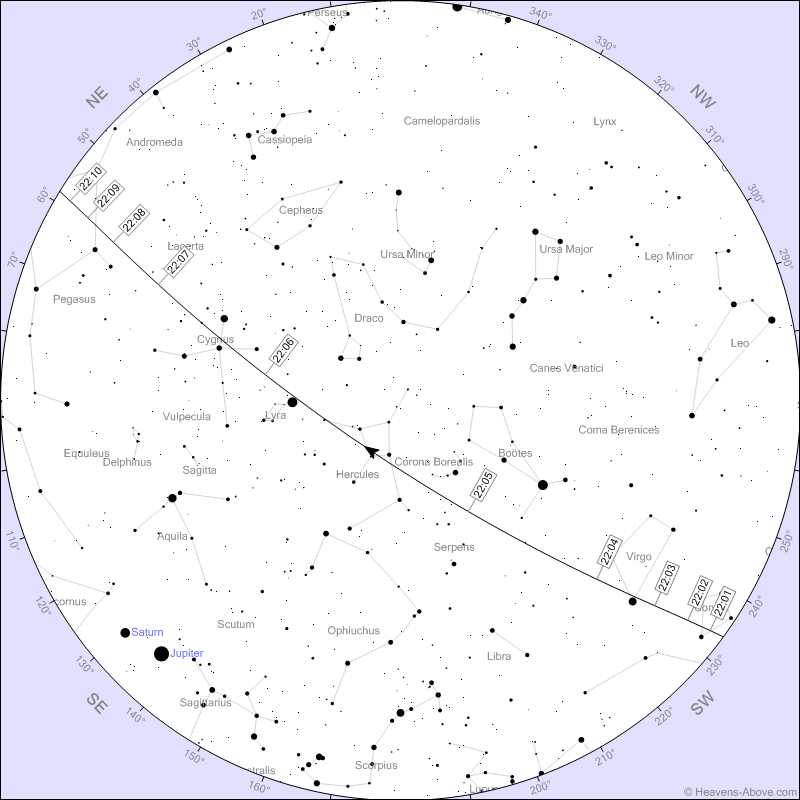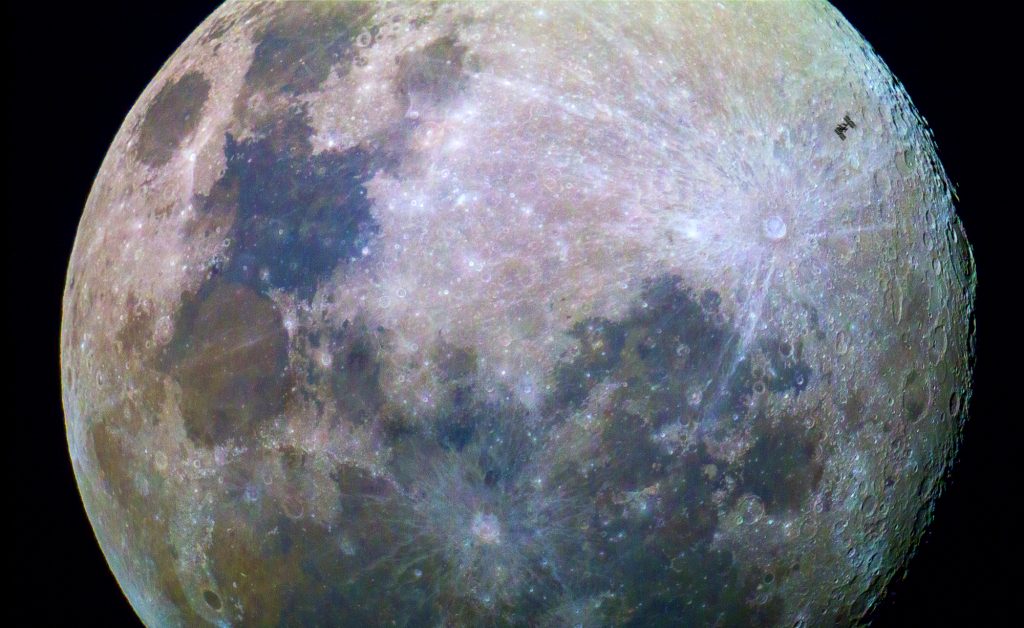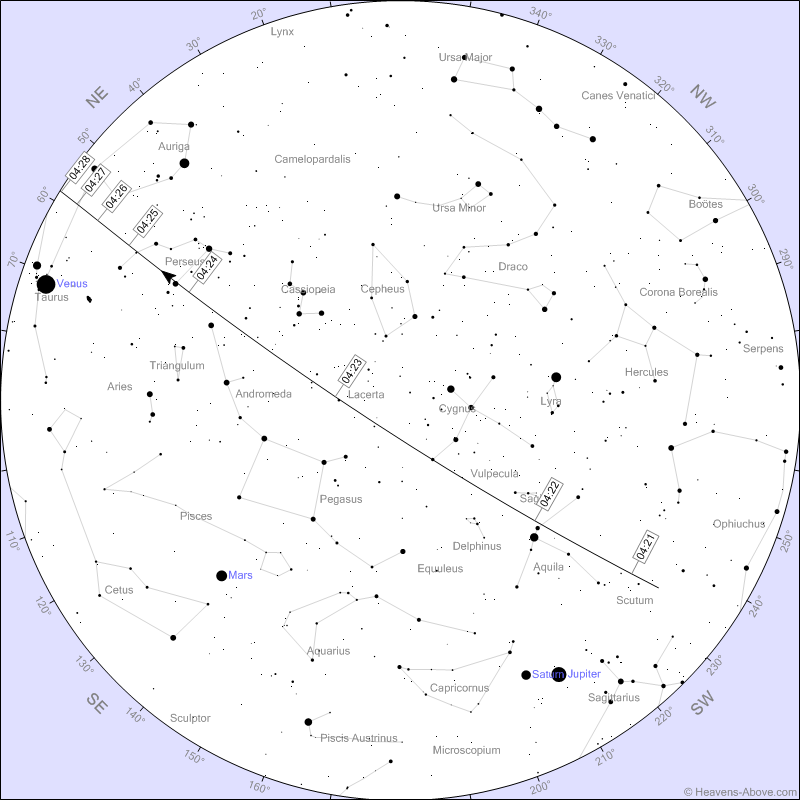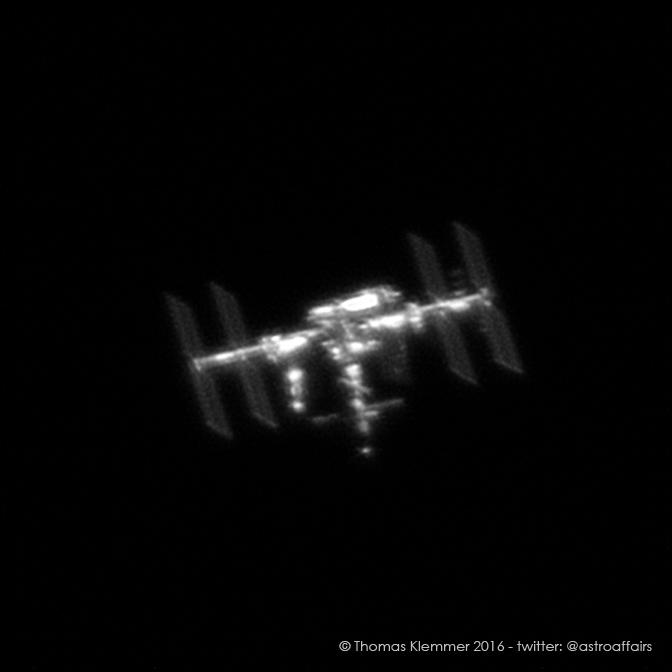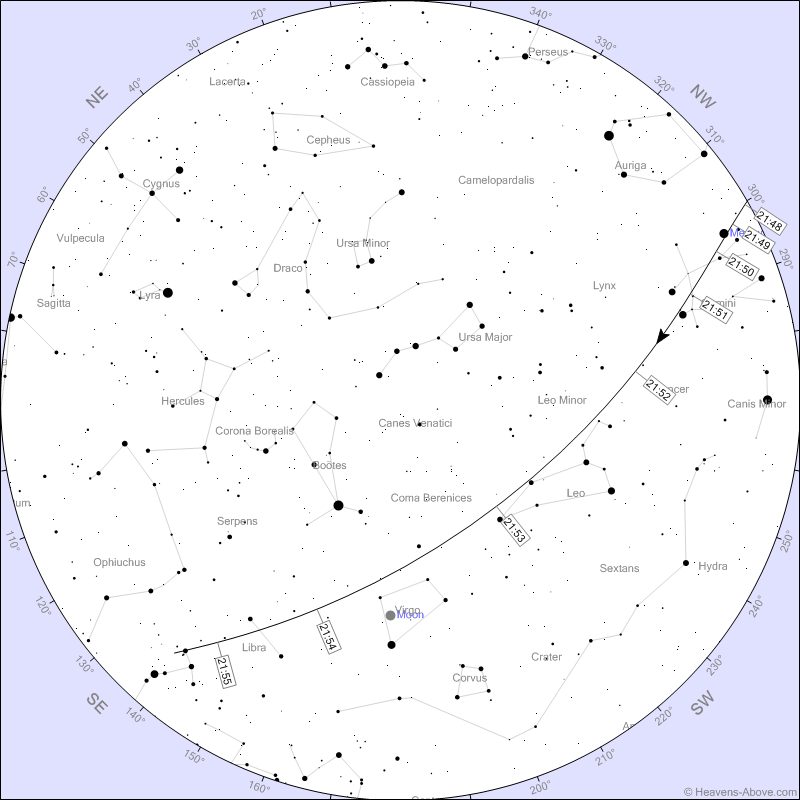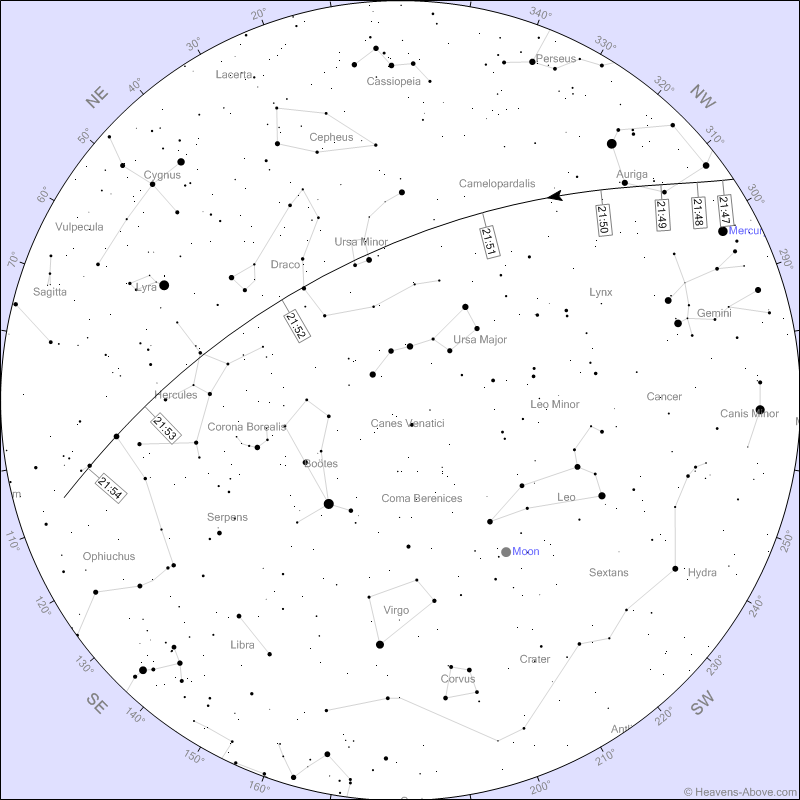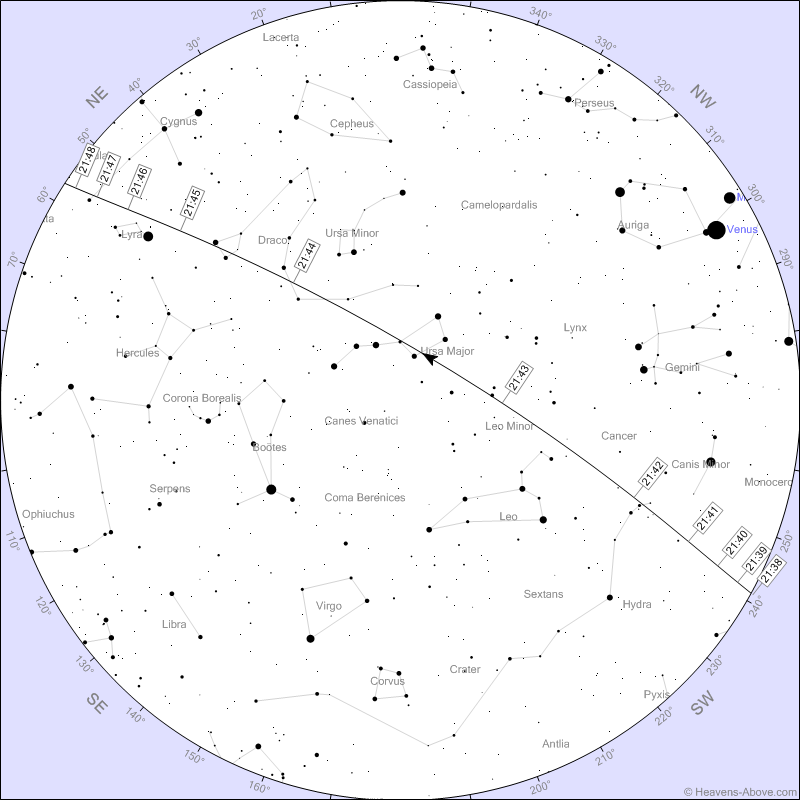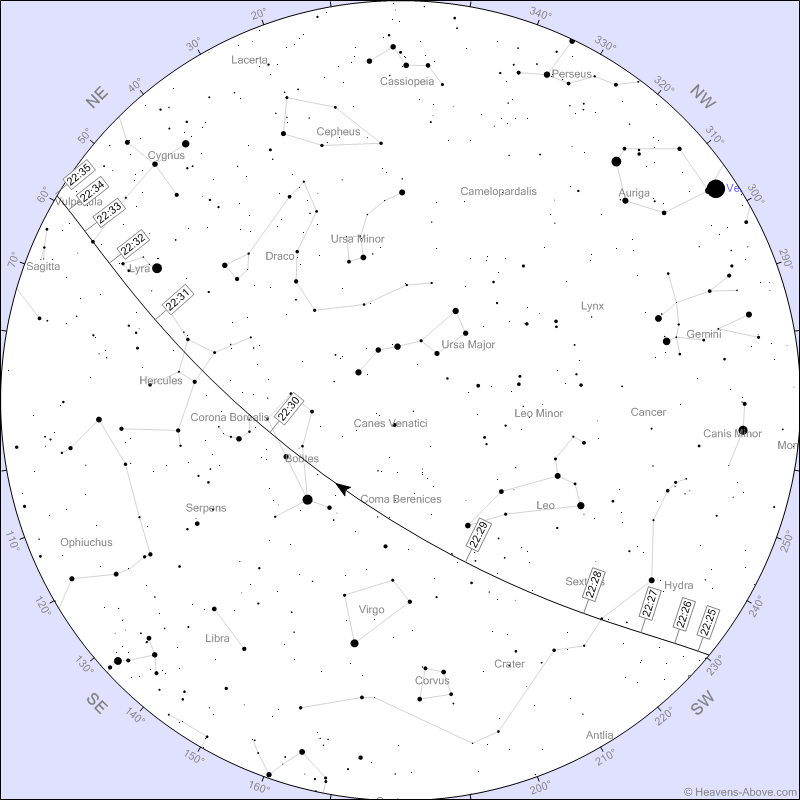Greater Toronto Area Space Station Flyovers for the week of July 19th, 2020
A composite of several images of the ISS taken through a 10″ telescope by James Boone from Tampa, Florida on Apr 27, 2014 Artificial satellites are visible because they are high enough to be bathed in sunlight while the sun is below the horizon for earthbound observers. When the geometry is just right, brilliant beams…
Read more
